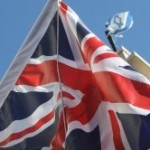 With less than two weeks to go before a quasi-deadline for the resumption of Israel-Palestinian negotiations, European Union foreign policy chief Catherine Ashton said on Monday the sides would be invited by the Mideast Quartet “to meet in the coming days.” Speaking in a press conference following a meeting of the EU Foreign Affairs Council that was webcast on the Council of the European Union website, Ashton said she was set to speak with leaders of both sides later that day.
With less than two weeks to go before a quasi-deadline for the resumption of Israel-Palestinian negotiations, European Union foreign policy chief Catherine Ashton said on Monday the sides would be invited by the Mideast Quartet “to meet in the coming days.” Speaking in a press conference following a meeting of the EU Foreign Affairs Council that was webcast on the Council of the European Union website, Ashton said she was set to speak with leaders of both sides later that day.
The discussions come as the deadline for a preparatory meeting for the sides suggested by the Mideast Quartet—the United States, the EU, the United Nations and Russia—is less than two weeks away. On September 23 the Quartet issued a timeline for resuming peace talks, in which they called for the preparatory meeting within a month’s time for discussions on the framework of the new round of negotiations. It was unclear if that was the meeting to which Ashton was referring on Monday.
Ofir Gendelman, spokesperson to the Arab media for Israeli Prime Minister Benjamin Netanyahu, said on his Twitter account later Monday that the Israeli leader had spoken with Ashton by phone and said he’ll “be happy to meet” with Palestinian President Mahmoud Abbas “any time.”
In addition to the EU Foreign Affairs Council discussion on the Middle East peace process, Ashton also participated in a meeting with envoys from the Quartet one day prior, on Sunday.
Ashton, in her comments broadcast via webcast, said discussions have been on “how to move forward on the action points within the [Quartet] statement and how to continue to engage with the Israeli and Palestinian partners to resume substantive negotiations as soon as possible.”
Ashton declined to give any specific timetables for talks restarting beyond the ones given by the Quartet.
“What I’m keen to do is to get the process moving, and see at what point it will be the right moment for people to actually sit in the room together and start to work out the detail,” said Ashton. “It’s important that the preparation is done well, in order that the talks really can succeed.”
In response to a question over what new ideas are being discussed to bring the sides together for talks, Ashton said they have been telling the parties that “there’s no new magic formula in this, what we know are the issues that need to be addressed. The question is the political will to address them, and the international community’s job is to offer as much support as possible for them to engage in order to achieve that political agreement.”
So far the Israelis have accepted the Quartet statement on resuming talks, with “some concerns” they plan to raise at the “appropriate time.” They remain eager to return to talks.
The Palestinians continue to place preconditions on negotiations, calling upon Israel to halt settlement construction and accept the 1967 lines as the basis for talks on borders. Despite that, the Palestinians have apparently conveyed enough openness that both the US and the EU have tried to highlight it. In a press statement, the EU Foreign Affairs Council welcomed both sides’ “positive statements” regarding the Quartet call to resume talks.
The 1967 lines were armistice lines between Israel and several Arab states, including Jordan and Egypt, prior to the Six-Day War. In this context, they would grant the Palestinians the entire West Bank and Gaza Strip, although land swaps are also generally expected.
Regarding the other precondition of a halt to settlement building, Israel had previously agreed to an unprecedented 10-month partial settlement construction freeze in 2009-10. However, the Palestinians waited until the freeze was nearing its end to upgrade negotiations with Israel to direct peace talks. The Palestinians then suspended talks after the freeze concluded.
The Palestinian application for full UN membership remains before the Security Council, who are currently studying it. Ashton avoided directly critiquing the Palestinian decision to go to the UN, in spite of the disapproval of the US and some in Europe for the Palestinian move.
Ashton said regarding the UN Security Council step that it is for the Palestinians to “make that judgment.” She also noted that its important the Palestinians think about how to “use this moment of the spotlight to be able to help the process of getting into talks, and for me that’s what really matters in all of this.”
(By Joshua Spurlock, www.themideastupdate.com, October 10, 2011)
